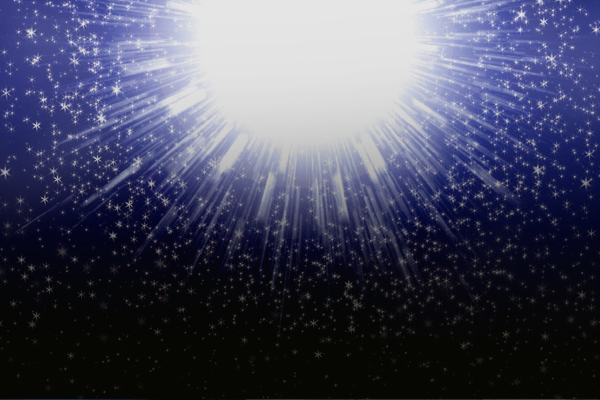
Now, many years later, I’ve come to realize I also believed in miracles, even when I was a philosophical naturalist. Dictionary.com provides the following definition of a “miracle”:
1. An effect or extraordinary event in the physical world that surpasses all known human or natural powers and is ascribed to a supernatural cause.
Given this definition, nearly everyone believes in one kind of miracle or another, including those who reject the existence of a supernatural God. Even as an atheist, I accepted the reasonable reality of at least one supernatural event. The Standard Cosmological Model (SCM) of naturalism is still the “Big Bang Theory,” a hypothesis that proposes that all space, time, and matter (the attributes of the natural universe) had a beginning (at a point of “cosmological singularity”). I accepted the SCM wholeheartedly as an atheist, even though the model presented a problem for my naturalistic worldview. If the SCM is true, we are living in a caused universe (whatever begins to exist must be caused; the universe began to exist; therefore, the universe must be caused). The cause of this universe, however, could not have been spatial, temporal, or material (because these attributes of the natural realm came into existence as a result of the cause). As Thomas Aquinas first argued, something cannot cause itself to come into existence because it would have to exist before it could bring itself into being, and this is clearly absurd.
So, even as an atheist, I believed there was a non-spatial, a-temporal, immaterial first cause of the universe. Let’s return to our definitions for a moment to examine the meaning of “supernatural”:
1. Of, pertaining to, or being above or beyond what is natural; unexplainable by natural law or phenomena; abnormal.
Our non-spatial, a-temporal, immaterial first cause clearly fits within this definition of “supernatural,” doesn’t it? The cause of the universe is, by definition, “above or beyond what is natural” in that it does not possess the attributes of the natural realm (it is not spatial, temporal, or material) and cannot be explained “by natural law.” Christians believe the beginning of the universe to be a supernatural miracle. Atheists agree. Share on X
As it turns out, the most spectacular and impressive miracle recorded in the Bible is actually found in the opening line of Genesis Chapter 1: “In the beginning God created the heavens and the earth.” Christians believe the beginning of the universe to be a supernatural miracle. Atheists agree. As a skeptic investigating the claims of Christianity, I eventually had to admit I also accepted at least one supernatural, miraculous event, and if I was willing to accept there might be a force capable of accomplishing something this remarkable, the lesser miracles described in the New Testament seemed much less implausible. As an atheist, my “reasonable” account of the history of the universe included a miraculous event. How could I then reject the Christian accounts of the Jesus’ life and ministry just because they also included miraculous events? To be consistent, all of us (theists and atheists included) need to suspend our presuppositional biases against the supernatural to assess the claims of Christianity fairly.
This blog post from J. Warner first appeared at the BreakPoint Blog (be sure to visit BreakPoint often)

J. Warner Wallace is a Dateline featured Cold-Case Detective, Senior Fellow at the Colson Center for Christian Worldview, Adj. Professor of Christian Apologetics at Talbot School of Theology, Biola University, author of Cold-Case Christianity, God’s Crime Scene, and Forensic Faith, and creator of the Case Makers Academy for kids.
Subscribe to J. Warner’s Daily Email
J. Warner Wallace is a Dateline featured cold-case homicide detective, popular national speaker and best-selling author. He continues to consult on cold-case investigations while serving as a Senior Fellow at the Colson Center for Christian Worldview. He is also an Adj. Professor of Christian Apologetics at Talbot School of Theology, Biola University, and a faculty member at Summit Ministries. He holds a BA in Design (from CSULB), an MA in Architecture (from UCLA), and an MA in Theological Studies (from Gateway Seminary).
































